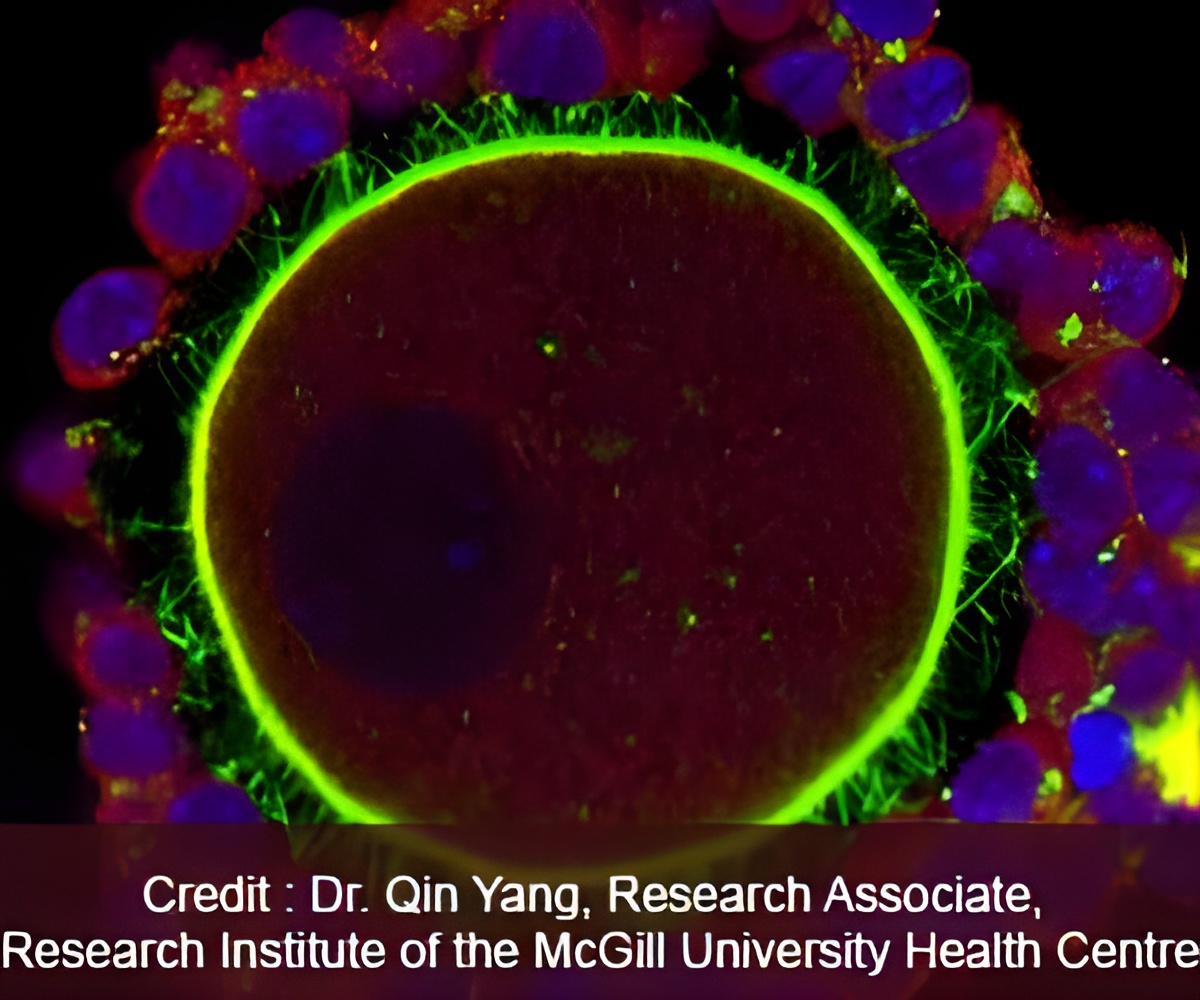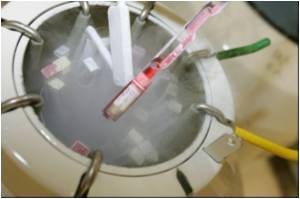
‘The development of an egg is a dynamic process, which sends signals to the tiny surrounding cells around to make more feeding tubes.’
Tweet it Now
Until recently, scientists did not really understand when and how those feeding tubes were constructed.Now, a team at the Research Institute of the McGill University Health Centre (RI-MUHC) led by scientist Dr. Hugh Clarke has found out who calls the shots when it is mealtime for the growing egg, how that cell-to-cell message is communicated and how the feeding tubes themselves are generated. It turns out the egg is in charge and its communication skills are highly sophisticated.
When it's time to get food, the egg sends signals to the tiny surrounding cells to make the feeding tubes, and as it grows and needs more nourishment, it signals them to make even more tubes.
These findings, which push the scope of our understanding of female fertility, were published in the Current Biology.
The study revealed that growth factors, especially one known as growth differentiation factor 9 - coming from the eggs drove the feeding tube multiplication and growth process, acting directly upon the genetic machinery of the follicle cells surrounding the egg. These discoveries put the spotlight directly on the egg itself, says Dr. Clarke.
Advertisement
"We observed that the whole process of egg development and its interaction with its environment is not static. It's very dynamic," adds first study author Stephany El-Hayek, who was a PhD student in Dr. Clarke's lab at Glen site of the RI-MUHC at the time.
Advertisement
Might it be because the cells surrounding the egg are not good at making enough feeding tubes as the egg grows older? The answer to that question, which Dr. Clarke's team is now investigating, could one day lead to the possibility of increasing fertility or even retaining fertility longer into older age, says the researcher.
"Understanding how the egg interacts with its environment will allow us to ensure that growing eggs retain their fertility," says Dr. Clarke.
"But it could also lead to developing techniques to grow healthy eggs in the laboratory in an effort to preserve fertility in women who have cancer," says Dr. Clarke.
Source-Eurekalert












